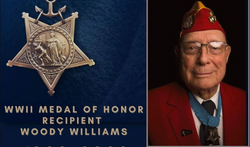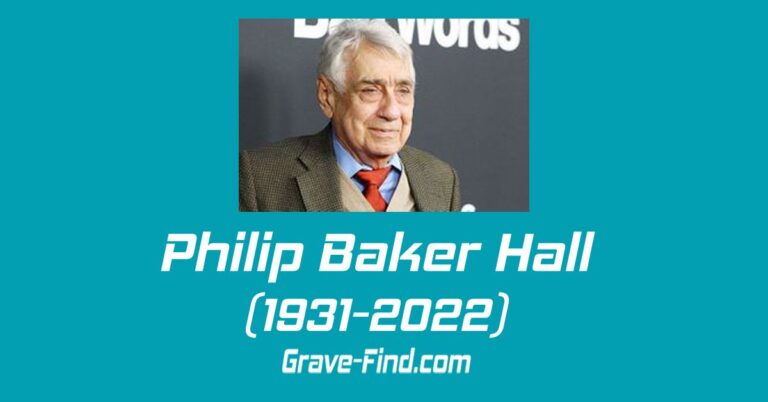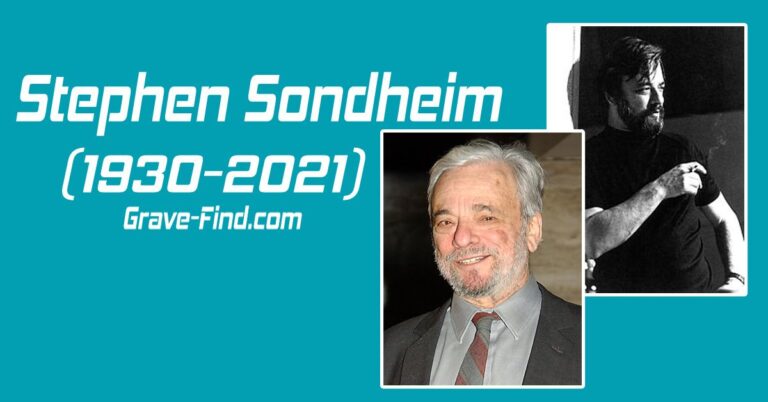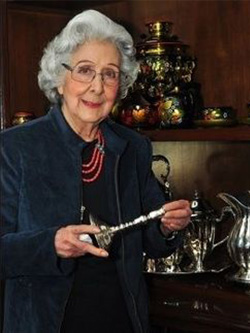Hershel Woody Williams (1923-2022) Medal of Honor Recipient
Hershel Woody Williams (1923-2022) Medal of Honor Recipient, Find a Grave Hershel Woody Williams find a grave, Hershel Woody Williams dies at 98, Hershel Woody Williams Grave, Hershel Woody Williams Death and burial details
| BIRTH | |
|---|---|
| DEATH | 29 June 2022 (aged 98)
Huntington, Cabell County, West Virginia, USA
|
| BURIAL |
Forest Memorial Park
Milton, Cabell County, West Virginia, USA |
| BIRTH NAME | Hershel Woodrow Williams |
| NICK NAME | Woody |
| SPOUSE | Ruby Meredith (Married 1945–2007 Death) |
| CHILDREN | Travie Ross, Tracie Ross |
| AWARDS | Medal of Honor, Purple Heart |
| RANK | Chief Warrant Officer 4 |
| UNIT | 1st Battalion, 21st Marine Regiment, 3rd Marine Division |
| BATTLES / WARS | World War II, Battle of Guam and Battle of Iwo Jima |
| YEARS OF SERVICE | 1943–1945, 1948–1949, 1954–1969 |
| OTHER WORK | Veterans Administration, Hershel Woody Williams Medal of Honor Foundation |
| NATIONALITY | American |
Hershel Woody Williams Wiki, Biography, Family, Life, Age and Death
Short Biography
Born the youngest of eleven children in rural West Virginia, he enlisted in the United States Marine Corps Reserve in the Spring of 1943.
Following basic recruit training in San Diego, Williams received further tank and infantry training at Camp Elliott. It was during this time that he was instructed on the mechanics of army issued flamethrowers, a weapon which would play a major role in his most courageous moment in the war.
Upon completion of training, Williams was deployed to the Pacific theatre, landing in the Melanesian Archipelago in the Autumn of 1943. The following Spring he participated in the Guadalcanal Campaign which saw the Allied Forces’ first major land offensive against the Imperial Japanese Army.
Shortly thereafter, he was part of the army’s successful seizure of the U.S. territory of Guam during the Mariana Campaign. On February 23, 1945, during the Battle of Iwo Jima, Williams became a legendary figure within the Marine Corps, attaining the nation’s highest military award for his actions.
Having landed on the island two days prior, his unit encountered ferocious resistance from the entrenched Japanese forces who had turned the volcanic battlefield into a fortress of pillboxes and earthen works. After being pinned down by heavy machine gun fire, Williams’ commanding officer ordered him and a small attachment of servicemen to neutralize an enemy bunker.
Armed with his flamethrower, he provided support for the infantry as they fought their way to the pillbox, attempting to destroy it with an improvised explosive device.
After all others in the entourage had been wounded by enemy fire, Williams managed to use the flamethrower to destroy the enemy instillation and all soldiers within it. Following the initial strike, he made five more subsequent trips back to his company’s lines to obtain explosive charges and refueled flamethrowers.
Wiping out pillboxes while under attack, he was at one point forced to repel a bayonet charge by enemy troops. By the end of the day, Williams had destroyed seven enemy pillboxes, successfully opening up a lane for U.S. infantry to move inland.
On the same day, he became a witness to history, observing the raising of the flag on Mount Suribachi, a moment made famous by photographer Joe Rosenthal. On March 6, 1945 he was wounded by enemy shrapnel, earning him the Purple Heart decoration.
Following his return stateside the following Autumn, Williams, along with thirteen others, was bestowed the Medal of Honor by President Harry S. Truman. Following the conclusion of the war, he remained in the Marine Corps Reserve, retiring in 1969 after seventeen years.
A beloved figure in his home state, Williams was honored by various civilian and military organizations throughout the decades. A holder of the West Virginia Distinguished Service Medal, he was also named to the West Virginia Hall of Fame and became the namesake of the Armed Services Reserve Center located in his home county.
In addition, the Huntington, West Virginia Veterans Affairs hospital, Fairmont West Virginia Veterans of Foreign Wars center, and a mobile landing vessel were also bestowed his name.
During Super Bowl LII, Williams was honored to represent the countless veterans to whom the game was dedicated. In this role, he was selected to perform the official coin toss. Following the death of fellow honoree, Charles Coolidge, he became the last surviving Medal of Honor recipient of the Second World War.









